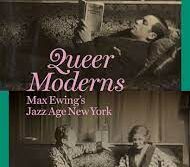 MADDER: A Memoir in Weeds
MADDER: A Memoir in Weeds
by Marco Wilkinson
Coffee House Press. 185 pages, $16.95
MARCO WILKINSON begins his sometimes flinty, sometimes lyrical memoir with the simplest of genealogical charts: Marco, the progeny of a mother and [father]—the father in brackets because, for the entirety of the author’s life, his true father has been “absent invisible soundless.” “That I have felt like an orphan is a shame I carry and will not let go,” Wilkinson writes. “The truth is I don’t even know if I am a worm or a child or a man or something past all of those.”
Wilkinson’s book is about his search for his father and, by extension, his roots and his identity. There was a great-grandfather who hailed from the Canary Islands and stowed away on a ship bound for Uruguay. But even this flimsy fact is cause for disappointment: “No one in my family now knows or cares what he did or why.” Wilkinson was 21 before he even learned his father’s name, a name he avoids mentioning in the book. From the only photo he ever saw of him—a blurred snapshot from the 1970s—he remembers heavy waves of black hair and not much else. “His absence hung above everything.”
His mother hailed from Soca, a derelict little Uruguayan town through which Montevideo’s middle class drove on Sunday excursions to the beach. She ironed the white napkins and tablecloths these sophisticated urbanites used when they stopped for refreshments. Her ticket out of this dreary life was to move to the capital, where she became a domestic worker. Later, she returned to Soca to help raise her little brother, until she was thrown out of the house and told to fend for herself. Hired as a domestic once again, she was “carried like an appliance to New York, where they exploited her without a second thought.” Later, she took a job in a chemical factory, working overtime “under the sodium-light-lit smokestacks,” processing paint dyes. The mother’s affair with the unnamed father leads to the birth of Marco in 1976. The man, who soon abandons them, is the only relationship Wilkinson’s mother ever had. “In her hardness she was virginal. In her capacity for self-sacrifice she was delusional … but I was proof, light spilling through fingers, a little birdsong filtering through, that there was once another, that she was soft and yielding then.” Wilkinson gets a scholarship to NYU, where he graduates magna cum laude. Eager to break out of the claustrophobia of the family, he sets out to work on a farm in Pennsylvania. The mother follows, desperate for access to her son. After a season on the farm, desperate himself and feeling like a failure, Marco returns to New York, where he takes a clerk’s job at St. Mark’s Bookshop. When former professors come in, he hides in the bathroom or the stockroom. He starts therapy. “Why can’t you be angry?” his therapist asks. In his mid-twenties, Wilkinson, “looking for a love of something that might anchor me,” returns to his love of plants, training as a horticulturalist at the Brooklyn Botanic Gardens. The most potent metaphors in the book relate to the vegetal world: he is a seed “brunting its head into the light.” Like moss, he is “able to fully reclaim life from death by rebuilding itself anew.” Wilkinson tells his story in a broken, fragmentary style. Part conventional autobiography, part prose poem, part meditation on the beauty of the natural world, with scattered bits of wordplay (one section is even printed in white words on black pages)—Madder is not an easy read. One might say that the book is littered with the “weeds” of Wilkinson’s life and rich imagination. And while the tone of much of his material is sad and somber, when Wilkinson turns (briefly) to his gay life—what he calls “homosocial comradery [sic]”—we come to understand that, unlike the mother, he has found both companionship and “the sweetness of men’s bodies.” ____________________________________________________

![In Search of [Father]This is a premium subscriber article. If you are already a premium subscriber and are not seeing all of the article, please login. If you are not a premium subscriber, please subscribe for access to all of our content.](https://glreview.org/wp-content/uploads/2021/12/Madder-740x357.jpg)



